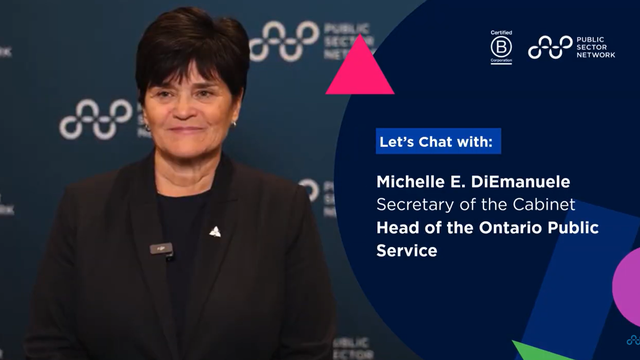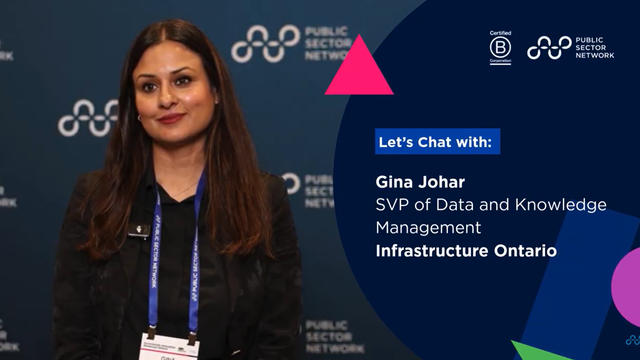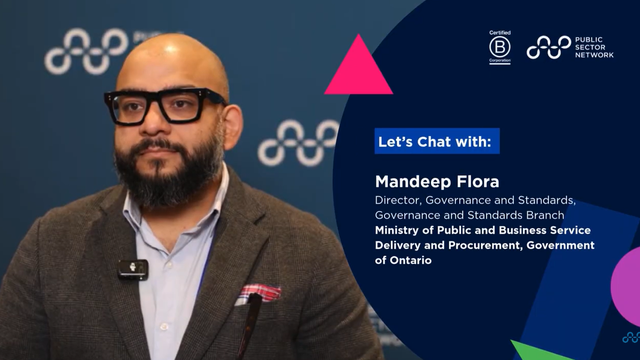
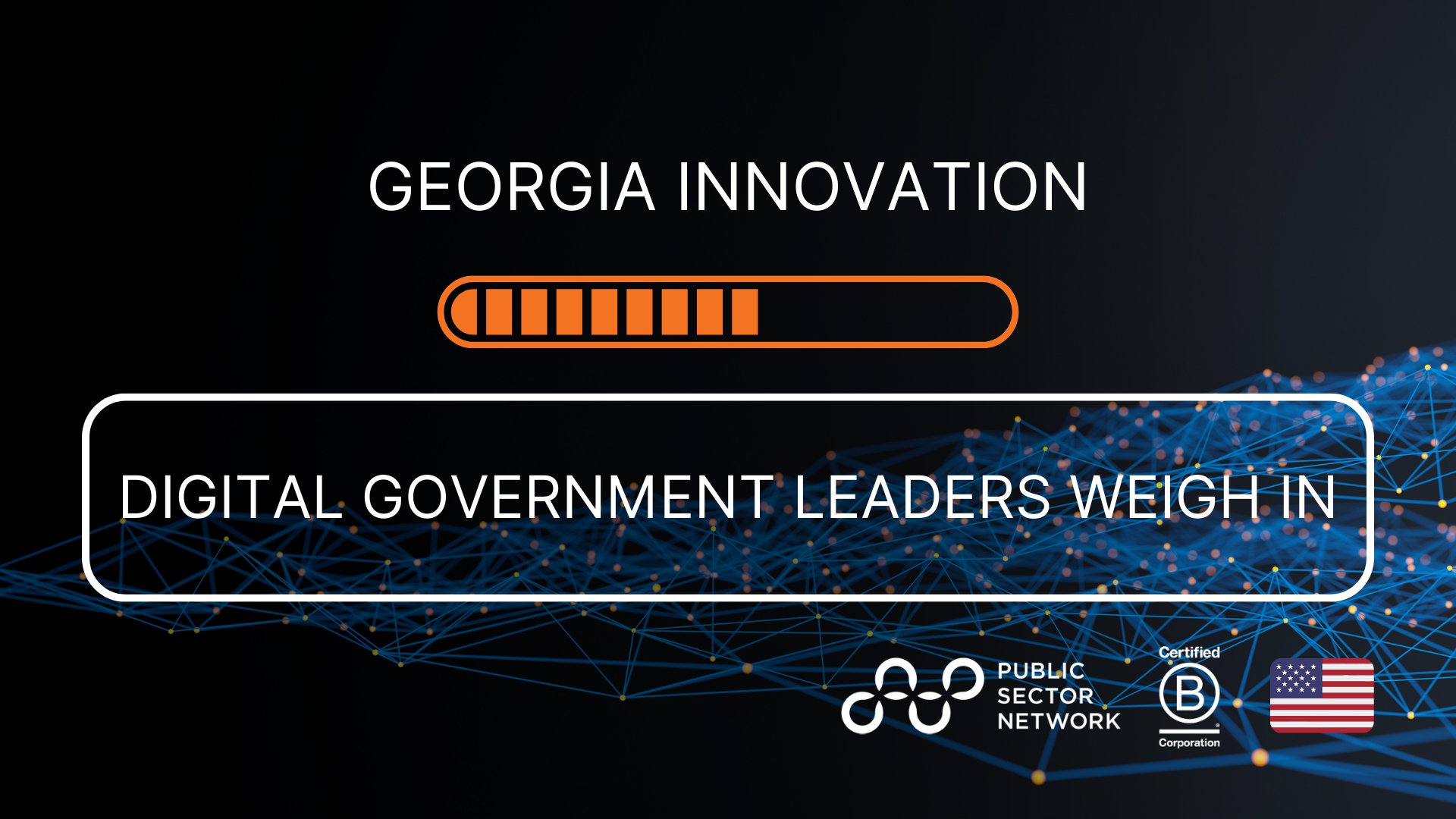
Georgia's Government Innovation Showcase 2025 provided an essential opportunity to assess the evolving challenges and priorities shaping the state’s digital government strategy. Key discussions focused on workforce transformation, budget constraints, cybersecurity, and the role of technology in modernizing public services. To gain real-time insights, attendees participated in polling, offering a comparative look at Georgia’s public sector priorities versus national trends.
The results highlight a strong emphasis on workforce upskilling and data-driven decision-making, signaling a recognition of talent development as a key enabler of digital government. At the same time, budget constraints, lower cross-agency collaboration, and concerns about cybersecurity set Georgia apart from national averages, revealing both challenges and opportunities in shaping the state's digital transformation agenda. This report unpacks these findings, offering a comprehensive analysis of how Georgia’s government leaders are navigating the path toward a more resilient, innovative, and connected public sector in 2024.
Georgia’s Digital Government Priorities: A Data-Driven Imperative, but Workforce Gaps and Collaboration Risks

A Stronger Push for Data-Driven Decision-Making
Georgia respondents placed a significantly higher emphasis on becoming more data-driven in decision-making (26%) compared to the national average (14%). This marks a clear regional focus on leveraging analytics, AI, and data infrastructure to enhance operational efficiency and policy effectiveness. The heightened priority suggests that Georgia sees digital transformation as deeply tied to data maturity—aligning with broader trends in AI adoption and evidence-based governance.
Tech Investments Align with National Trends
Investment in new technology and digital services (21%) closely mirrors national priorities (18%), reinforcing a widespread commitment to modernizing government capabilities. Georgia’s slight lead in this area signals recognition of emerging tech’s role in enhancing service delivery, particularly as cloud computing, AI, and automation reshape public sector efficiencies.
Lagging Focus on Workforce Transformation
Despite Georgia's strong emphasis on data-driven strategies, updating workplace culture and upskilling the workforce ranked significantly lower (13%) than the national average (22%). This disparity suggests a potential misalignment between technology adoption and workforce readiness. As AI and automation integrate into government services, the gap in workforce preparedness could pose challenges in execution, highlighting an urgent need for targeted investments in digital skills development.
Resilience on the Rise, but Collaboration Takes a Backseat
Building resiliency and improving business continuity plans saw higher prioritization in Georgia (8%) compared to the national average (3%), indicating a proactive stance on operational sustainability. However, collaboration with other departments and tiers of government received only 5% of responses, well below the national benchmark (14%). This suggests that while internal modernization efforts are advancing, siloed decision-making may be a risk factor. Strengthening inter-agency collaboration is crucial to ensuring interoperability, shared data strategies, and cohesive digital service delivery.
Georgia’s Innovation Barriers: Budget Pressures and Workforce Gaps Threaten Progress
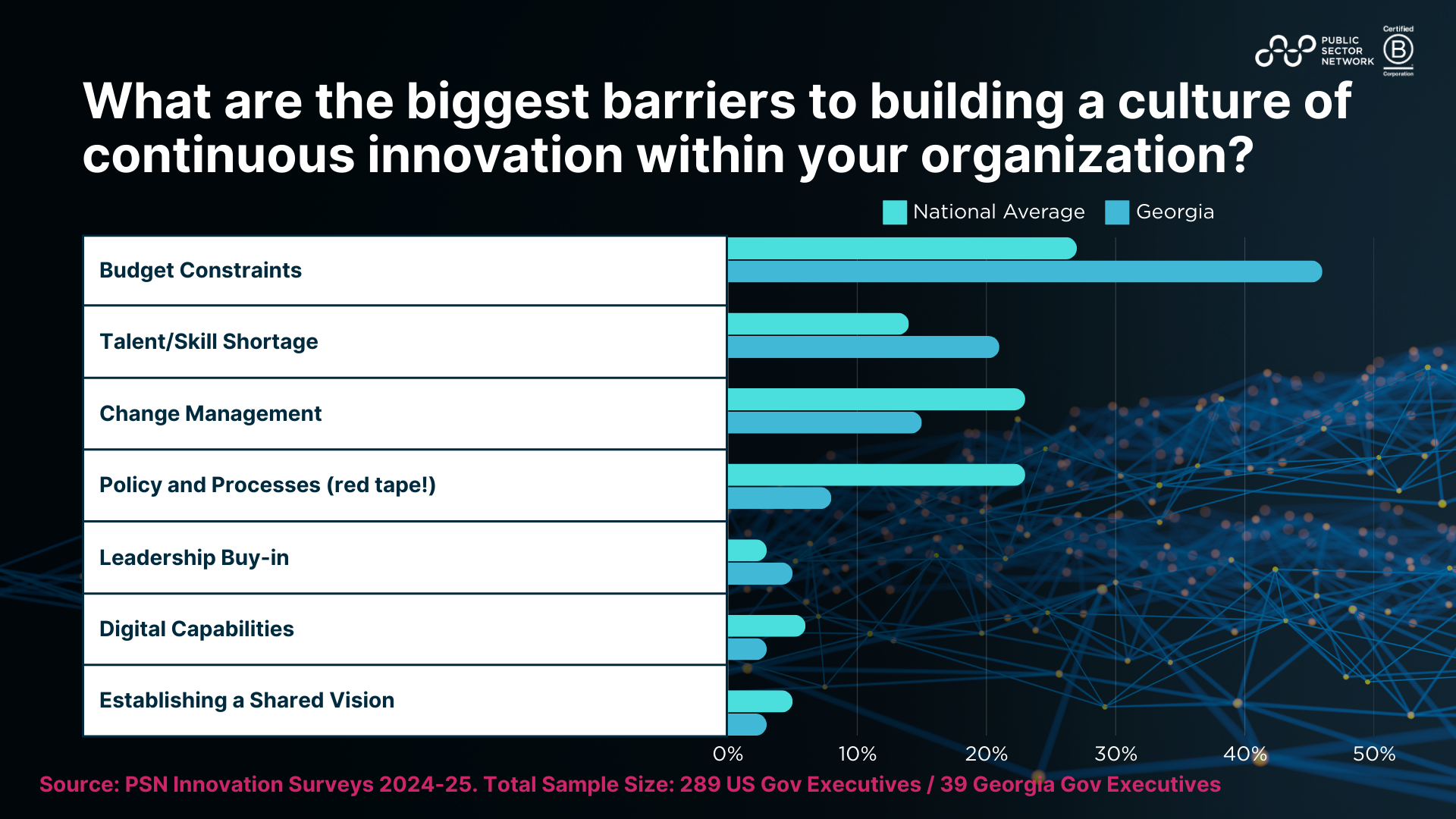
Severe Budget Constraints Overshadow All Other Barriers
Budget constraints are by far the most significant challenge for Georgia agencies, with 46% citing it as a top barrier—nearly double the national average (27%). This overwhelming emphasis suggests that funding limitations are restricting the ability to experiment with emerging technologies, invest in modernization, and scale innovation initiatives. While budget concerns are common across government agencies, Georgia’s markedly higher figure may indicate structural funding issues or difficulties in securing investment for long-term digital transformation.
Workforce Gaps Are a Growing Concern
Talent and skill shortages (21%) were also ranked significantly higher than the national average (14%), reinforcing Georgia’s earlier polling result that showed a lower prioritization of workforce upskilling. This suggests that while agencies recognize a lack of digital talent as a challenge, current strategies may not be adequately addressing workforce readiness. The combination of high workforce barriers and underinvestment in skills development could slow Georgia’s ability to operationalize data-driven and digital initiatives.
Less Concern for Red Tape, but Change Management Still an Issue
Unlike the national trend, where policy and process barriers (“red tape”) were cited by 23% of respondents, Georgia’s result was significantly lower (8%). This suggests that agencies in the state feel less burdened by bureaucratic hurdles compared to their national peers. However, change management remains a challenge (15%), although at a lower level than the national average (23%). While this may indicate a slightly more adaptable culture, it still represents a notable obstacle to embedding continuous innovation within government processes.
Lower Emphasis on Leadership Buy-In and Digital Capabilities
Leadership buy-in (5%) and digital capabilities (3%) were relatively low-priority concerns, aligning closely with the national trend. This suggests that while Georgia agencies may struggle with execution due to funding and skills shortages, there is a foundational level of leadership support for innovation efforts.
Georgia’s Public Sector Challenges: Budget Pressures and Technological Change, but Workforce Concerns Lag

Budget Pressures Dominate as the Leading Concern
Economic challenges, including budgets and competing priorities, are seen as the biggest challenge in Georgia (38%), a significantly higher concern than the national average (29%). This reinforces earlier polling results, where budget constraints were cited as the most significant barrier to innovation (46%). The combined data suggests that funding pressures are not just limiting digital transformation efforts but are also seen as a broader systemic challenge for public sector modernization.
Greater Concern for Technology Disruptions
Georgia respondents were notably more concerned about technological challenges (21%) compared to the national average (14%), indicating that the digital divide and the rapid pace of technological change are major stress points. This aligns with Georgia’s prioritization of becoming more data-driven but also highlights potential challenges in keeping up with emerging technologies, modernizing legacy systems, and ensuring equitable digital access across communities.
Workforce Concerns Are Less Pronounced in Georgia
Surprisingly, workforce issues (21%) were much less of a concern in Georgia compared to the national average (34%), despite earlier polling showing that talent shortages were a significant innovation barrier (21%). This discrepancy suggests that while agencies recognize workforce gaps as an obstacle to innovation, they do not view it as the most pressing long-term challenge facing the public sector. However, the disconnect between digital ambitions and workforce readiness could pose hidden risks for Georgia’s future transformation efforts.
Cybersecurity and Information Security Risks Are a Rising Concern
Georgia respondents ranked cybersecurity and information security as a more significant challenge (13%) than the national average (3%). This finding supports Georgia’s moderate prioritization of modernizing data and cybersecurity processes (13%), suggesting that agencies are increasingly aware of the critical need to protect digital assets, citizen data, and government infrastructure. As cyber threats continue to escalate globally, Georgia’s heightened awareness presents an opportunity to prioritize cybersecurity investment and resilience-building measures.
Less Focus on Citizen Trust and Social Equity
Issues related to demographic changes and citizen trust (3%) and social challenges such as accessibility and equal access (5%) were rated lower than the national averages (11% and 4%, respectively). Additionally, no respondents in Georgia selected the environmental metro/rural divide (0%) as a major challenge. These results suggest that Georgia’s public sector leaders are more focused on immediate financial, technological, and security concerns rather than broader societal and demographic shifts.
Georgia’s Workforce Approach: A Focus on Upskilling, but Recognition of Inaction

Strong Emphasis on Career Pathways and Upskilling
Georgia respondents ranked career paths and upskilling (38%) as the top approach to tackling workforce challenges, significantly higher than the national average (28%). This suggests a proactive effort to enhance digital skills and retain talent by providing clear professional growth opportunities. Given Georgia’s earlier polling results, which showed workforce upskilling as a lower organizational priority (13%) compared to the national average (22%), this response indicates an awareness of the issue, even if it hasn’t been fully prioritized at the strategic level.
High Acknowledgment of Inaction
A notable 28% of Georgia respondents stated their agency is not addressing workforce challenges but should be, compared to 19% nationally. This figure aligns with Georgia’s previous lower emphasis on workforce transformation as a priority (13%) and its lower ranking of workforce challenges as a major public sector issue (21% vs. 34% nationally). The contrast between recognizing the need for action and actually prioritizing workforce development suggests that many agencies may struggle with execution, despite understanding the importance of upskilling.
Lower Adoption of Flexible Talent Strategies
Georgia agencies were slightly less focused on expanding talent pools through flexible working (10% vs. 12% nationally), indicating that hybrid and remote work strategies may not yet be fully leveraged as a tool for talent attraction and retention. Similarly, Georgia’s adoption of non-traditional benefits and individualized rewards (10%) was slightly higher than the national average (5%), but still represents a minority approach.
Minimal Focus on Employer Branding and Values Alignment
Responses related to aligning with employee values (8%) and improving the government brand (5%) were in line with or below the national averages (8% and 8%, respectively). This suggests that Georgia’s public sector may be missing opportunities to attract and retain talent by emphasizing government work as mission-driven, innovative, and aligned with employee purpose.
Georgia’s Path to Meeting Government Expectations: A Workforce-First Approach, but Less Focus on Collaboration

Upskilling Takes Center Stage in Georgia
Unlike the national trend, where workforce upskilling was seen as a lower priority (10%), Georgia respondents ranked it much higher at 23%, signaling a growing recognition that skills development is a key enabler of digital transformation and service excellence. This aligns with earlier findings showing that Georgia agencies prioritize career pathways and upskilling (38%) but also acknowledge they are not doing enough to address workforce challenges (28%). The data suggests a turning point—agencies are beginning to recognize that without a digitally capable workforce, broader modernization efforts may stall.
Talent Attraction & Retention Still a Major Concern
With 28% of Georgia respondents ranking talent strategies as the most critical change needed, workforce attraction and retention remain a primary focus—closely aligned with the national sentiment (30%). This reinforces previous findings that while Georgia agencies understand the importance of talent, they have struggled with execution, with many acknowledging workforce transformation is not yet a priority.
Lagging Focus on Cross-Agency and Cross-Sector Collaboration
Collaboration across agencies and sectors—the top national response (34%)—was notably lower in Georgia at 26%. This echoes previous findings where only 5% of Georgia respondents identified interdepartmental collaboration as a key organizational priority, significantly below the national average (14%). The consistent underemphasis on collaboration suggests that Georgia agencies may be operating in silos, potentially missing opportunities for shared innovation, resource pooling, and integrated digital service delivery.
Minimal Differences in Data and Digital Services Priorities
Georgia’s emphasis on improved data democratization (13%) and expanding digital services (10%) is closely aligned with national trends (14% and 12%, respectively). This suggests that while data and digital services are recognized as important enablers of transformation, they are secondary to more foundational workforce and collaboration challenges.
Conclusion: Georgia’s Path to a Digitally-Driven and Resilient Public Sector
Georgia’s public sector polling results underscore a strong commitment to data-driven decision-making, workforce upskilling, and cybersecurity, reflecting a growing recognition that digital transformation requires both technological investment and workforce readiness. However, budget constraints, lower cross-agency collaboration, and execution gaps in workforce strategies pose significant challenges that could slow progress in achieving long-term digital maturity.
The heightened concern over budget pressures suggests that financial constraints are not only limiting innovation but also shaping overall modernization efforts. At the same time, Georgia’s higher-than-average prioritization of workforce upskilling signals an understanding that sustainable digital transformation depends on equipping public servants with the right skills—though this effort must move beyond recognition to implementation.
One of the most pressing areas for improvement is cross-agency collaboration, which ranked significantly lower than the national average. Without stronger intergovernmental partnerships, Georgia may miss opportunities to share resources, integrate digital services, and streamline policy implementation. Additionally, while cybersecurity concerns are growing, aligning security investments with broader digital transformation initiatives will be critical to ensuring a secure and scalable digital infrastructure.
To bridge these gaps and accelerate Georgia’s public sector modernization, agencies must balance financial constraints with strategic investment in workforce development, cybersecurity, and cross-sector collaboration. By leveraging data-driven innovation, improving interagency cooperation, and aligning talent strategies with digital service expansion, Georgia has the potential to build a future-ready public sector that effectively meets the evolving needs of its citizens.
